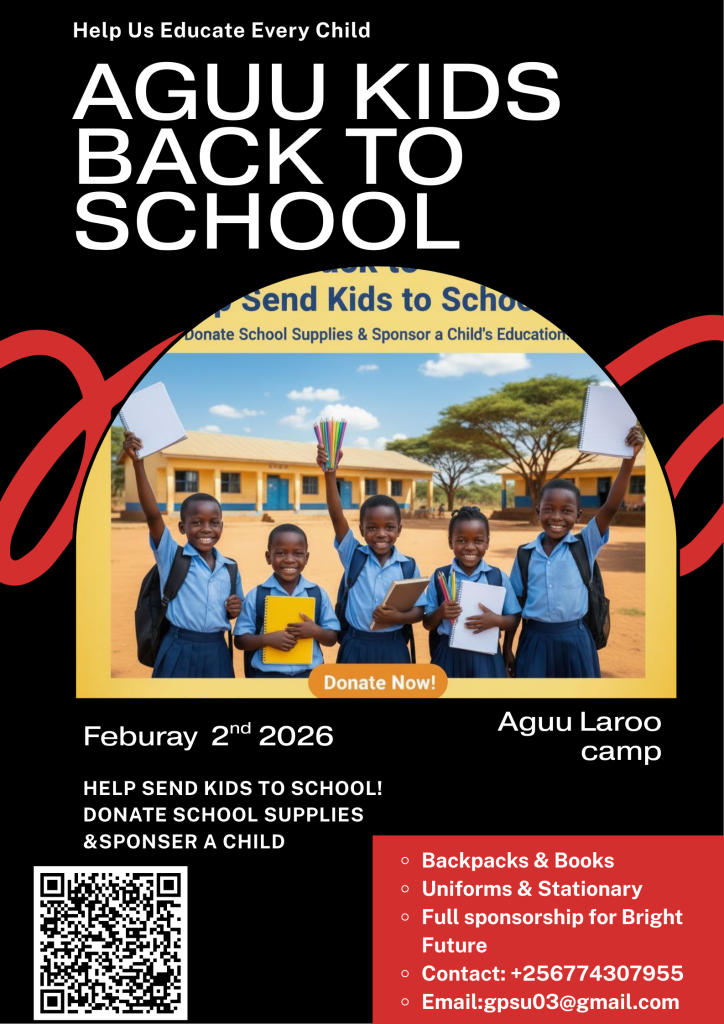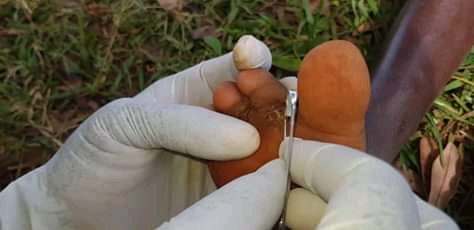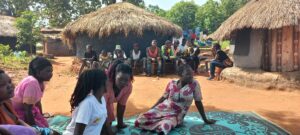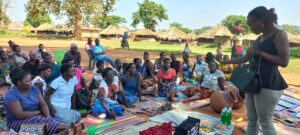Aguu Kids Back to School – School Supplies and Monthly Food Support Campaign.

Aguu Kids Back to School is an urgent initiative of Global Pathways to Success Uganda (GPSU) supporting vulnerable children living in the Aguu Laroo camp in Northern Uganda.Many of these children are orphans or without regular parental care and struggle daily with hunger, neglect, and the risk of dropping out of school.
Through this campaign, we aim to provide school backpacks, books, uniforms, stationery, and monthly food supplies so that Aguu children can return to class on February 2nd 2026 and stay there throughout the term.
Our team and local volunteers organize distributions directly in the camp, monitor the children, and work with community leaders and teachers to ensure that support reaches those most in need.Donations also help with basic logistics for field visits and documentation so we can transparently share impact stories with supporters.
We welcome both one-time and recurring gifts—every contribution, small or large, makes a tangible difference by keeping a child in school and providing a consistent source of food and hope.To join or partner with the Aguu Kids Back to School and monthly food support programme, please contact Global Pathways to Success Uganda at +256774307955 or gpsu03@gmail.com, or scan the QR code on the campaign flyer for direct giving options.



